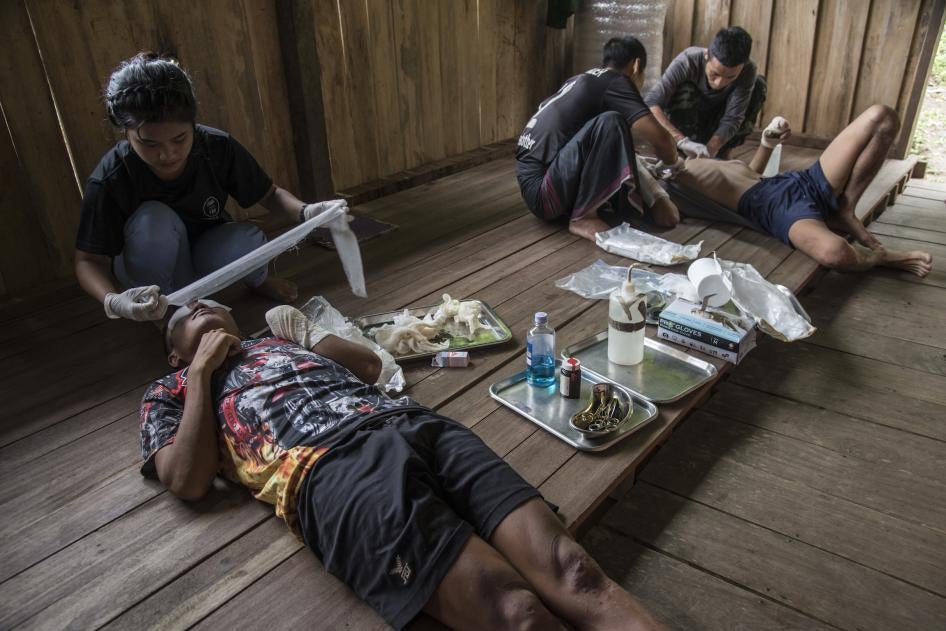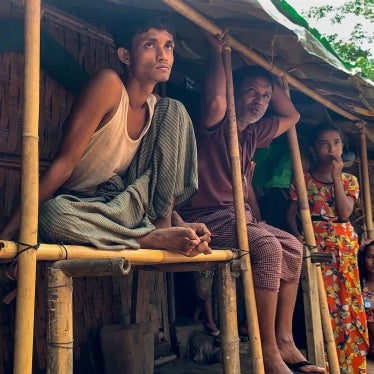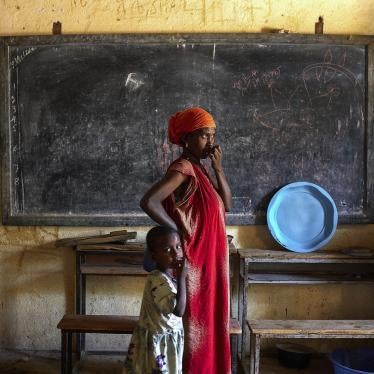“I lost my leg and my cow.”
Aoung Gya Thowai Tanchangya, 22, was grazing his cattle along the Bangladesh-Myanmar border on September 16. “Sometimes our cattle cross into Myanmar so we have to go bring them back,” he said. “I didn’t realize there could be mines planted. When I stepped onto the mine, it exploded. I lost consciousness. When I woke up, I saw that my left leg was gone. I still feel pain.”
In 2022, 25 years since the international Mine Ban Treaty was adopted, only two countries actively use antipersonnel landmines: Russia and Myanmar. Myanmar’s forces have used landmines since 1999, but new use by the junta has surged since the February 2021 coup, according to the Landmine Monitor Report 2022, released last week.
The report analyzed photographs of hundreds of landmines manufactured by the junta and planted across the country.
From February 2021 to September 2022, 157 civilians were killed and 395 injured by landmines and explosive remnants of war in Myanmar. About one-third of the casualties were children. The military has placed landmines in homes, village pathways, church compounds, and farms. Military units have continued to force civilians to act as “human shields,” walking ahead of troops to detonate any mines.
In August, as fighting spread across Rakhine State, the ethnic armed group Arakan Army located dozens of military-manufactured mines. Casualties are rising from landmines laid along the Bangladesh-Myanmar border, where civilians like Tanchangya collect firewood, farm, and graze cattle. Witnesses reported activity by Myanmar soldiers near border posts in the days before recent mine blasts.
Myanmar’s military has long been implicated in numerous serious violations of the laws of war, many amounting to war crimes, in armed conflicts in ethnic minority areas. Since the coup, junta authorities have blocked lifesaving aid and ordered healthcare workers to refuse treatment for mine injuries. For the 1.4 million people displaced across Myanmar, the risk of landmines can hinder their ability to return home.
The Monitor report also cited use of mines by non-state armed groups.
The 1997 Mine Ban Treaty prohibits antipersonnel mines and requires their clearance, destruction of stocks, and victim assistance. Although Myanmar is not a party to the treaty, the junta’s use remains unlawful: Landmines do not discriminate between civilians and combatants. They kill and maim long after they are placed.
At the 20th meeting of states parties to the Mine Ban Treaty, opening this week in Geneva, governments should condemn Myanmar’s use of antipersonnel landmines, while strengthening efforts to cut off the junta from the revenue underwriting its use of these devastating weapons.









